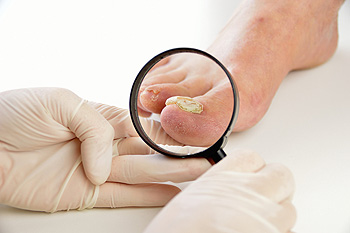 Many people may experience poor circulation, and noticeable symptoms may be present in the feet. This condition may be a result of inadequate levels of oxygen and nutrients in the blood, which is normally pumped through blood vessels in the feet. There are many symptoms that are associated with poor circulation, and these may include a numbing sensation in the feet, coldness, and the skin color may appear to look pale blue or red. Patients may be aware of sores that have developed, and may have difficulty in healing properly, which may be a result of insufficient blood supply in the feet. Additionally, the toenails may grow slower than they usually do, and any hair that is present on the toes may not grow at all. If you are experiencing any symptoms relating to poor circulation in your feet, it is strongly advised to speak to a podiatrist as quickly as possible who can properly treat this condition.
Many people may experience poor circulation, and noticeable symptoms may be present in the feet. This condition may be a result of inadequate levels of oxygen and nutrients in the blood, which is normally pumped through blood vessels in the feet. There are many symptoms that are associated with poor circulation, and these may include a numbing sensation in the feet, coldness, and the skin color may appear to look pale blue or red. Patients may be aware of sores that have developed, and may have difficulty in healing properly, which may be a result of insufficient blood supply in the feet. Additionally, the toenails may grow slower than they usually do, and any hair that is present on the toes may not grow at all. If you are experiencing any symptoms relating to poor circulation in your feet, it is strongly advised to speak to a podiatrist as quickly as possible who can properly treat this condition.
While poor circulation itself isn’t a condition; it is a symptom of another underlying health condition you may have. If you have any concerns with poor circulation in your feet contact one of our podiatrists of Canonsburg Podiatry Associates. Our doctors will treat your foot and ankle needs.
Poor Circulation in the Feet
Peripheral artery disease (PAD) can potentially lead to poor circulation in the lower extremities. PAD is a condition that causes the blood vessels and arteries to narrow. In a linked condition called atherosclerosis, the arteries stiffen up due to a buildup of plaque in the arteries and blood vessels. These two conditions can cause a decrease in the amount of blood that flows to your extremities, therefore resulting in pain.
Symptoms
Some of the most common symptoms of poor circulation are:
- Numbness
- Tingling
- Throbbing or stinging pain in limbs
- Pain
- Muscle Cramps
Treatment for poor circulation often depends on the underlying condition that causes it. Methods for treatment may include insulin for diabetes, special exercise programs, surgery for varicose veins, or compression socks for swollen legs.
As always, see a podiatrist as he or she will assist in finding a regimen that suits you. A podiatrist can also prescribe you any needed medication.
If you have any questions, please feel free to contact our office located in Canonsburg and McMurray, PA . We offer the newest diagnostic and treatment technologies for all your foot care needs.



